The Reuters news staff had no role in the production of this content. It was created by Reuters Plus, the brand marketing studio of Reuters.
Paid for and created by

Disclaimer: The Reuters news staff had no role in the production of this content. It was created by Reuters Plus, the brand marketing studio of Reuters. To work with Reuters Plus, contact us here.
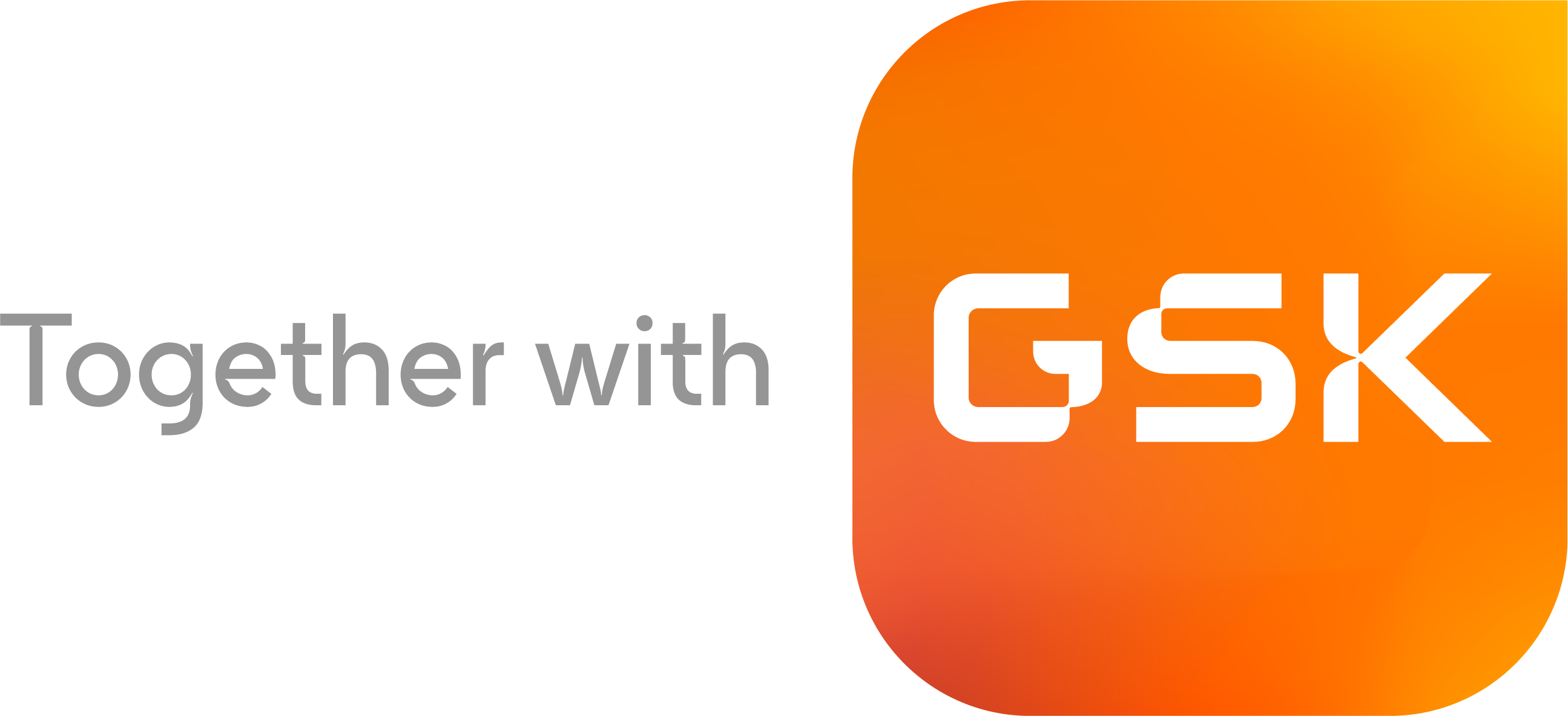

New survey galvanizes support to address the challenges of gynecologic cancers
After a gynecologic cancer diagnosis, the challenges for patients go far beyond the physical. But they can become manageable for those armed with the right knowledge—and the right support.



ust four and a half months after the all-clear at her annual gynecologic checkup, Jennifer Garam’s sudden ovarian cancer diagnosis came as a bolt from the blue.
J
“My main symptoms were bloating and abdominal pain — and I only really experienced them for one week before going to Urgent Care to get it checked out; cancer was the last thing on my mind,” says the ovarian cancer survivor and advocate from Westchester County, New York. “But things progressed quickly from my Urgent Care visit to a CT scan, to a discharge report saying ‘GO TO THE E.R. IMMEDIATELY.’”
It was just one month after her 43rd birthday when Garam was diagnosed with Stage 3 ovarian cancer—devastating news that was understandably difficult to process.
“I was lucky to get diagnosed quickly and to find an incredible surgeon and amazing, compassionate medical professionals almost immediately,” she says. “But I was a single woman living in Brooklyn at the time. I had no primary caregiver and I needed help.”
I was lucky to get diagnosed quickly and to find an incredible surgeon and amazing, compassionate medical professionals almost immediately.

The mental and emotional toll of Garam’s diagnosis and treatment experience mirrors the struggles of many gynecologic cancer patients. According to a new multinational survey commissioned by GSK and conducted by The Harris Poll, 73% of patients surveyed did not feel empowered to overcome their diagnosis. The emotional impacts were significant, with nearly half (48%) of those in Garam’s age group (30-49) reporting negative effects on their mental health. At the time of her diagnosis and throughout treatment, Garam was in regular contact with her therapist and psychiatrist for essential mental and emotional support. She stresses the importance of caring for not only your physical health, but also your mental health, during and after treatment.
The survey included 818 gynecologic cancer patients and survivors across 10 countries, asking them about their unique experiences with endometrial, ovarian, cervical, vaginal and/or vulvar cancer – discovering several physical and emotional barriers preventing individuals from accessing the care they need.
In response to these concerns, GSK launched the Your Cancer Is Our Challenge initiative to show patients with a gynecologic cancer diagnosis that they’re not alone, and to provide a higher level of support and clear information, in order to help them navigate their own gynecologic cancer journey, especially those who may be facing common challenges.
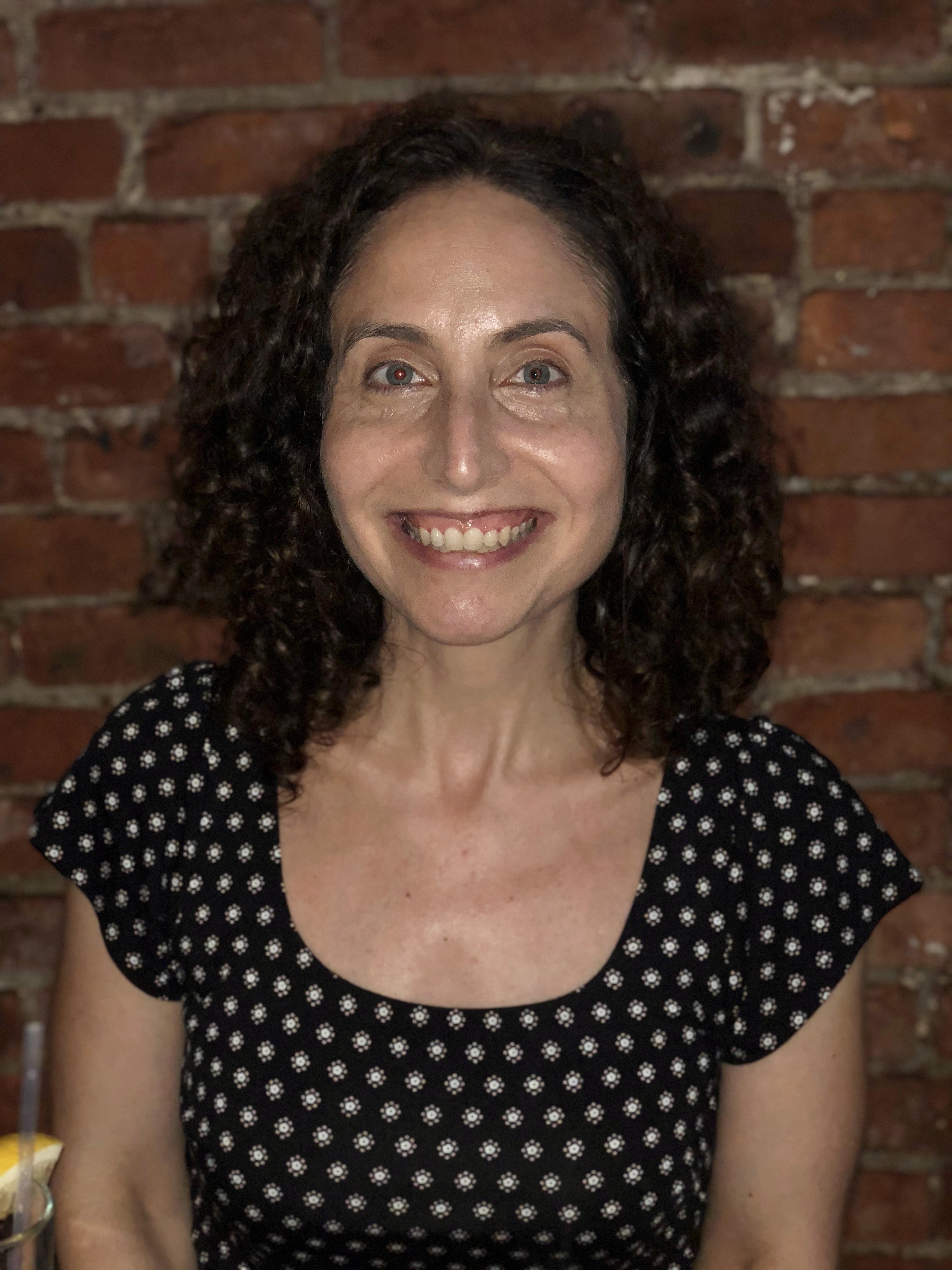
For Garam, what happened next restored her confidence—not just in her cancer journey, but in her local community. Very quickly, she realized that she was far from isolated.
“After Urgent Care sent me to the E.R., I wound up being hospitalized for a week, which was when I was officially diagnosed with ovarian cancer. While I was in the hospital that week, I kept drafting and deleting a Facebook post, trying to tell everyone what was happening,” she says. “But I was afraid that sharing the news on social media would make it ‘real.’ If I didn’t share it publicly, I could still be thought of by some people as someone who didn’t have cancer.
“When I finally found the courage to hit ‘Publish’ on that post weeks later and share my diagnosis publicly, I got this huge, overwhelming amount of support,” she adds. “Not just from friends and family, but from all kinds of unexpected places—like the superintendent in my building, and acquaintances from my local coffee shop.”
From that point on, Garam says, her journey toward survivorship and her “new reality” looked completely different. There were so many people who wanted to support her as she underwent cancer treatment that she had to create a spreadsheet for people to book slots to attend her chemotherapy appointments with her. More friends, neighbors, and even acquaintances helped Garam in other ways, from cooking meals to doing household chores around �her apartment to dropping off groceries and cups of her �favorite coffee.
“I had always been very self-sufficient, but it was important for me to realize I didn’t have to face cancer alone,” Garam says. Not wanting to trouble their loved one(s) and/or caregiver(s) with their needs is a feeling expressed by some (30%) of the patients surveyed, however, Garam encourages people undergoing treatment for gynecologic cancer to ask for the help and support they need. “For me, having cancer actually turned out to be the opposite of isolating, because I found that everyone really does want to help,” she says.

I had always been very self-sufficient, but it was important for me to realize I didn’t have to face cancer alone.
According to the World Cancer Research Fund, more than 1.4 million people were diagnosed with a gynecologic cancer in 2022, and many more currently live with a gynecologic cancer – including ovarian, endometrial (also known as uterine), cervical, vaginal and/or vulvar cancer.
“One key takeaway from my diagnosis and treatment experience is the importance of prioritizing your own health,” Garam says. “When Urgent Care told me that I had to get a CT scan right away — that day — I initially wanted to put it off until later in the week when I had a day off so I wouldn’t miss work. But I am so glad I let my mom convince me to get the CT scan that day. Timing is everything—who knows how my experience would’ve been different if I hadn’t gone right away.”
In the survey, GSK found many patients reported feeling overwhelmed or uncertain about what to expect during (41%) or after treatment (36%) following their diagnosis. Equally telling, nearly three-quarters (72%) of patients noted that they experienced challenges that prevented them from attending their appointments, with approximately 1 in 4 citing day-to-day responsibilities (25%), difficulty managing the required paperwork (24%), or not feeling well enough to leave the house (23%), as the most common reasons.
In this concerning context, having the right knowledge and support can make a major difference—not just in choosing the best treatment option, but also in shouldering the emotional burden of the cancer journey.
Yet, all these unmet needs are firmly in focus for GSK’s Your Cancer Is Our Challenge initiative, which is stepping up to support people at every stage of their experience with gynecologic cancer, recognizing that patients need more than just effective treatment options.
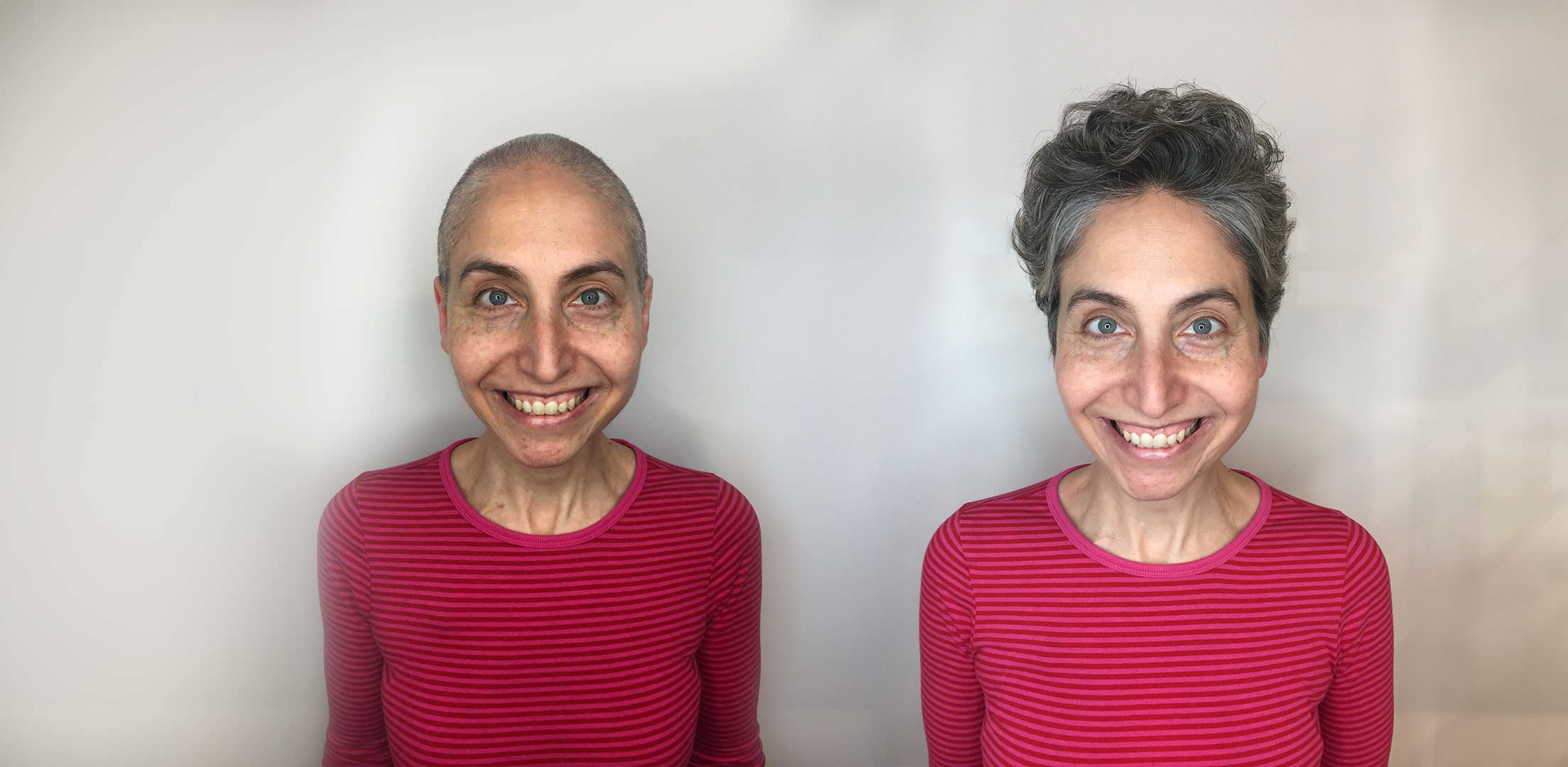
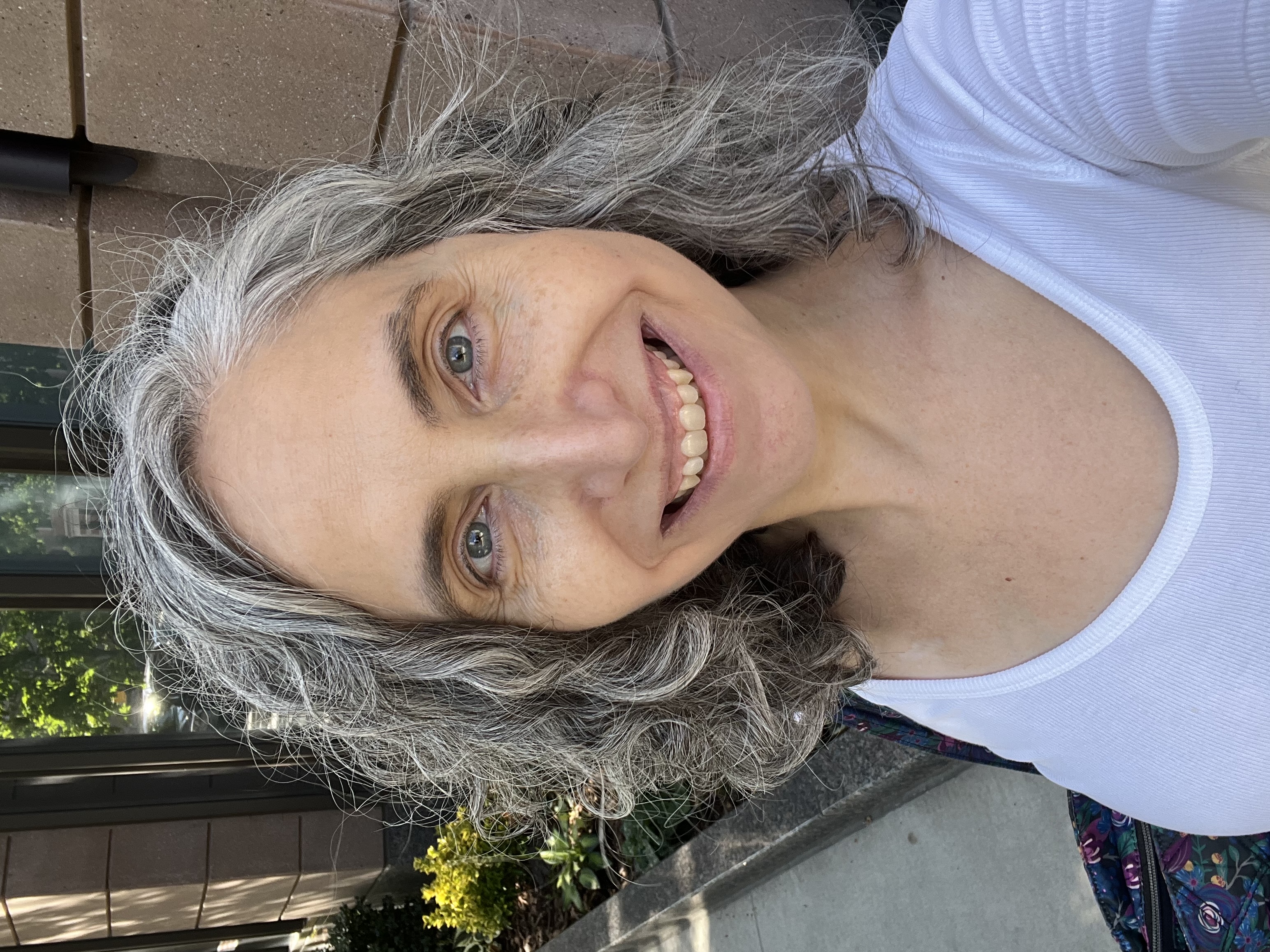
Learn more about the
“Your Cancer Is Our Challenge” initiative.
Jennifer Garam’s 43rd birthday, one month before her ovarian cancer diagnosis.
— Jennifer Garam
— Jennifer Garam
Garam smiles after a recent check-up, during which her gynecologic oncologist told her she had graduated from biannual check-ups to annual visits, September 2024.
Left: Garam after getting her head shaved at the hair salon, November 2018.�Right: After completing treatment with a full head of hair, December 2019.
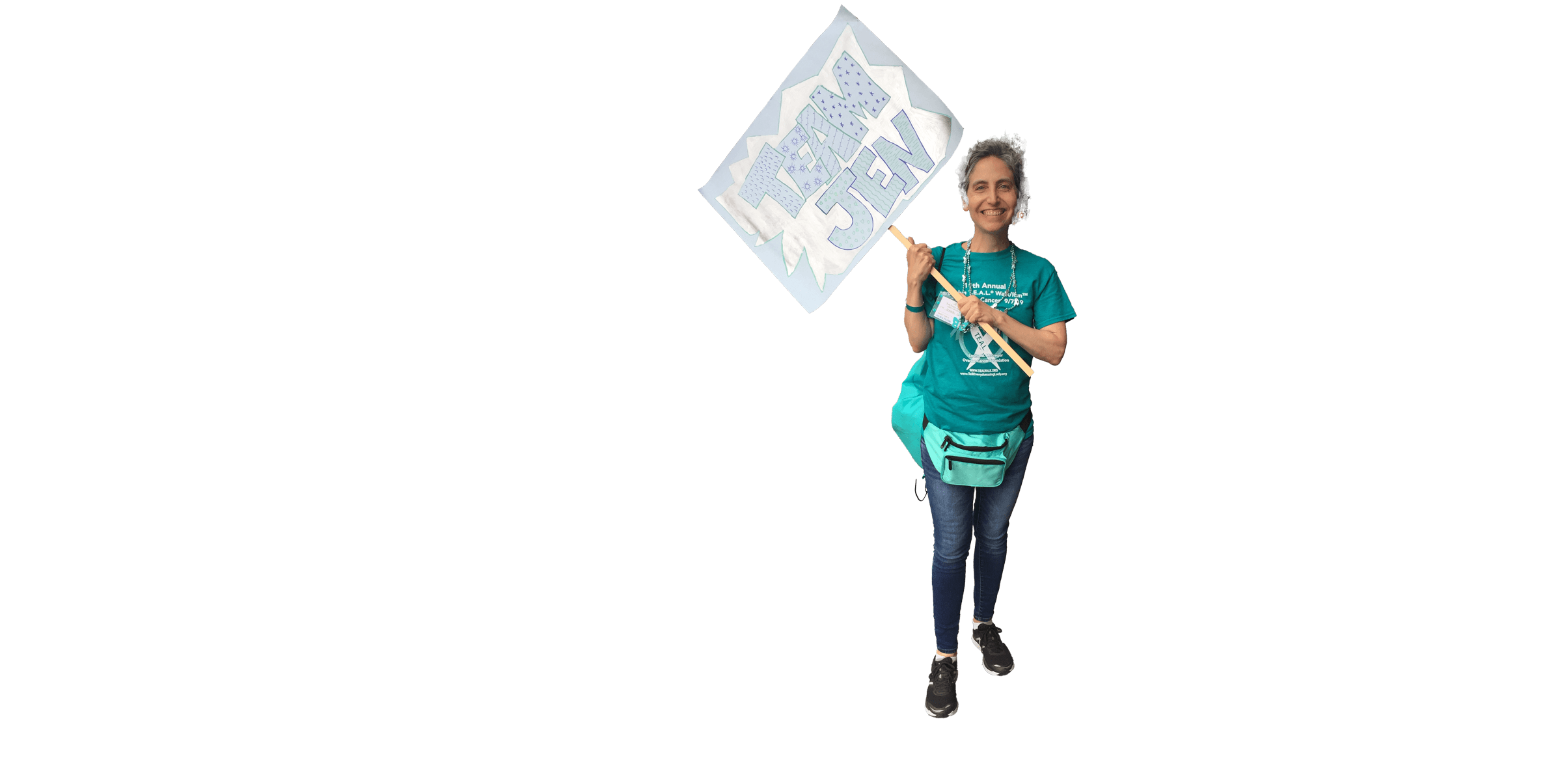

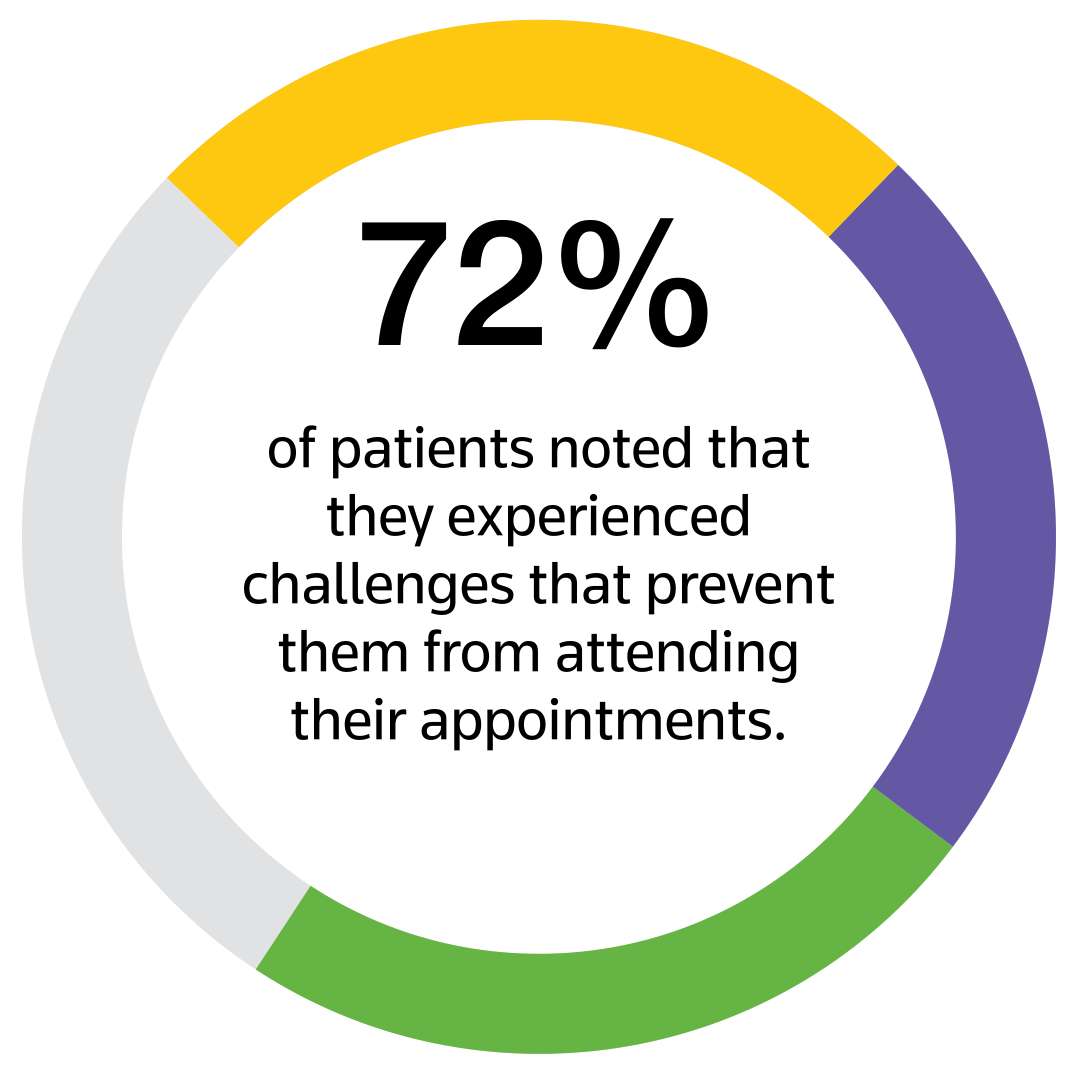
%
25
Day-to-day responsibilties
24
%
Difficulty managing required paperwork
23
%
Not feeling well enough to leave the house
Most common barriers to attending appointments
Written and paid for by GSK
“GSK saw a need to provide a higher level of support and clear information to help patients navigate their cancer journey,” explains Nina Mojas, GSK’s Senior Vice President, Oncology Global Product Strategy. “It stood out to me that across the 10 countries we surveyed, despite different cultural contexts, infrastructure and healthcare systems, we saw patients note similar experiences. We were able to identify four main themes: gaps in knowledge related to treatment, the emotional burden of treatment and care, barriers to care, and low utilization of patient support.”
With those key themes recognized, GSK was then able to �pinpoint more specific problems, in a bid to raise awareness and �identify solutions.
“One area that particularly surprised me was how few patients had received genetic tests, despite the important role biomarker and other testing can play in determining a patient’s treatment options,” Mojas says. “Similarly, respondents across regions expressed desire for more information about their diagnosis, with 95% reporting they’d like additional information about at least one topic, including what to expect during and after treatment.”
Armed with these insights, GSK’s multiyear initiative aims to make a real difference for patients—as well as survivors like Garam.
“While science continues to speed toward more effective treatments, it’s equally important for those with a gynecologic cancer diagnosis to feel the support of the community around them; to feel seen and confident in their journey to better health,” says Mojas. “GSK looks forward to building upon the valuable insights gathered through its survey to help address the barriers identified and mobilize support to create solutions for gynecologic cancer patients and survivors.”

One key takeaway from my diagnosis and treatment experience is the importance of prioritizing your own health.
— Jennifer Garam
Your Cancer Is Our Challenge
NP-GBL-AOU-WCNT-250002
This article was sponsored and written by GSK. Subjects were compensated for their participation in the development of this article.
of patients are most likely to have received a lot or a great deal of emotional support from family/friends during their treatment.
nearly three-fifths also received a lot or a great deal of assistance getting to appointments.
similarly, a majority of patients also received a lot or a great deal of help with day-to-day responsibilities.
71
%
57
%
56
%
Source: Global barriers in gynaecologic oncology impacting treatment experience and outcomes
Source: Global barriers in gynaecologic oncology impacting treatment experience and outcomes
Date of preparation: February 2025
The Reuters news staff had no role in the production of this content. It was created by Reuters Plus, the brand marketing studio of Reuters.

Produced by Reuters Plus for

Disclaimer: The Reuters news staff had no role in the production of this content. It was created by Reuters Plus, the brand marketing studio of Reuters. To work with Reuters Plus, contact us here.